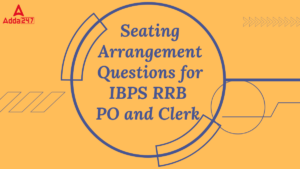Table of Contents
How to Crack English in Banking Exams 2024
Cracking the English section of banking exams is a crucial step towards securing a position in the banking sector. With the competition becoming increasingly fierce, it is essential to have a well-structured plan to ace this section. Here’s a comprehensive guide to help you excel in the English section of banking exams in 2024.
Understanding the Exam Pattern
Before diving into preparation strategies, it’s vital to understand the exam pattern. The English section in most banking exams, such as IBPS PO, SBI PO, and RBI Grade B, generally includes the following types of questions:
Reading Comprehension: Passages followed by questions to test comprehension and interpretation skills.
Cloze Test: A passage with blanks where candidates need to fill in the most appropriate words.
Error Spotting: Sentences with grammatical errors that candidates must identify.
Sentence Improvement: Sentences that need correction or improvement.
Para Jumbles: Jumbled sentences that need to be arranged in a logical sequence.
Fill in the Blanks: Sentences with blanks where the most suitable word or phrase must be inserted.
Preparation Strategies
Excelling in the English section of bank exams need not be a daunting task, even if you lack confidence in your language proficiency. By establishing a robust foundation and dedicating consistent practice, you can significantly enhance your English language competence and secure impressive scores. This article aims to provide you with valuable strategies to bolster your English language abilities, enabling you to approach bank exams with certainty and achieve remarkable results. Below we have provided a comprehensive preparation strategy to score good marks in exams.
Build a Strong Vocabulary
A strong vocabulary is essential for mastering the English section of banking exams, as it not only aids comprehension but also enhances your writing and communication skills. Here are some effective methods to boost your vocabulary:
Daily Reading: Read newspapers, magazines, and journals regularly. Focus on editorials and opinion pieces to encounter a variety of words.
Vocabulary Lists: Maintain a list of new words, their meanings, and usage. Make it a habit to review and incorporate these words into your daily communication and writing.
Contextual Learning: Try to understand and remember words in the context they are used, rather than just memorizing definitions.
Enhance Grammar Skills
Mastering grammar is the cornerstone of effective communication, and it holds paramount importance in the English section of bank examinations. Fortifying your grammar skills necessitates a thorough comprehension of fundamental concepts and a keen awareness of common errors. This section outlines strategies to enhance your grammar proficiency, enabling you to excel in this critical aspect of language proficiency.
Conceptual Understanding: Concentrate your efforts on developing a comprehensive understanding of the foundational grammar principles. These include mastering subject-verb agreement conventions, proper utilization of tenses, identifying and using different parts of speech accurately, constructing well-structured sentences, and applying appropriate punctuation rules. Establishing a solid grasp of these core concepts will serve as the bedrock for enhancing your overall grammar proficiency.
Grammar Books: Use standard grammar books like Wren and Martin. Focus on key areas such as subject-verb agreement, tenses, prepositions, and conjunctions.
Practice Exercises: Regularly solve grammar exercises to reinforce your understanding. Quizzes on online platforms like ADDA247 can also help identify and correct grammar errors.
Master Reading Comprehension
Reading comprehension is a vital part of the English section in bank exams, assessing candidates’ abilities to understand and interpret written passages. Here are several effective strategies to boost your reading comprehension skills:
Reading Practice: Read a variety of texts – fiction, non-fiction, articles, and essays. This will help you get accustomed to different writing styles.
Skim and Scan: Practice skimming (reading quickly to get the main idea) and scanning (searching for specific details) techniques to navigate through passages efficiently.
Summarize Passages: Practice summarizing passages in your own words. This helps in understanding the main ideas and improves retention.
Speed Reading: Work on increasing your reading speed without compromising comprehension. Techniques like skimming and scanning are useful here.
Practice Cloze Tests and Para Jumbles
Pattern Recognition: Identify common patterns in cloze tests and para jumbles. Practice makes perfect in these sections.
Context Clues: Use context to figure out the correct words or sequence. Understanding the overall meaning of the passage is crucial.
Regular Mock Tests
Mock tests are important to analyze your preparation. Mocks provide you information gaps in your understanding of a concept.
Timed Practice: Take timed mock tests to get used to the exam pressure. This will help you manage time effectively during the actual exam.
Analyze Performance: After each mock test, analyze your performance. Identify weak areas and work on them.
Improve Speed and Accuracy in Error Identification
Exercises that evaluate candidates’ ability to pinpoint grammatical errors within sentences serve as assessments of their error-spotting skills. To develop speed and accuracy in this area, a comprehensive understanding of grammar rules and common mistake patterns is essential. Here are some strategies to improve your performance:
Recognize Error Trends: Familiarize yourself with recurring error patterns, such as subject-verb agreement issues, inconsistencies in tense usage, and incorrect word choices.
Consistent Practice: Dedicate regular time slots to practising error-spotting exercises. Begin with identifying errors in simple sentences and gradually progress to more complex constructions.
Grasp Conceptual Foundation: Develop a solid understanding of the underlying grammatical concepts associated with different error types. This will enable you to identify errors more efficiently and apply appropriate corrections.
Timed Drills: Practice error-spotting exercises under timed conditions to enhance your speed and accuracy. Set a timer and aim to complete a specific number of questions within the allotted time frame.
Review and Reflect: After completing practice exercises, review your answers. Identify the errors you missed and analyze the reasons behind them. This process will reinforce your learning and minimize future mistakes.
How to Utilize Time in Banking Exams to Score Better?
Effective time management is a crucial skill for tackling the English section of bank exams. With a limited time frame of 15-20 minutes to answer 25-30 questions, you have less than a minute per question. Here are some strategies to optimize your time utilization:
Prioritize Straightforward Questions
Begin with the questions you are confident about and can solve quickly. These will allow you to accumulate marks and boost your confidence. You can temporarily skip the overly lengthy, complex, or confusing questions and revisit them later if time permits.
Allocate Time Based on Question Types and Weightage
The English section typically covers reading comprehension, grammar, vocabulary, paragraph rearrangement, cloze tests, error detection, and more. Distribute your time according to the number and difficulty level of questions for each topic. For instance, dedicate more time to reading comprehension, as it carries higher weightage and requires deeper understanding, compared to vocabulary-based questions that can be solved relatively quickly.
Carefully Read and Eliminate Incorrect Options
Thoroughly read the questions and answer choices before selecting your response. Employ the process of elimination to rule out options that are clearly incorrect or irrelevant. This approach will narrow down your choices and increase the probability of identifying the correct answer.
Review and Verify Responses
If you have remaining time after attempting all questions, review your answers and check for any errors or oversights. Address any skipped or marked-for-review questions during this final review stage. However, exercise caution when considering changing your initial responses unless you are absolutely certain, as hasty alterations may result in losing marks.
Final Tips for English Section in Banking Exams
Stay Consistent: Consistency is key. Allocate specific times each day for English preparation and stick to it.
Stay Positive and Confident: A positive mindset can greatly impact your performance. Believe in your preparation and stay confident.
Seek Help When Needed: If certain topics seem difficult, don’t hesitate to seek help from teachers or online forums.
By following these strategies diligently, you can significantly improve your performance in the English section of banking exams in 2024. Remember, regular practice and a methodical approach are your best allies in this journey. Good luck!
| Related Post | |
| Banking Awareness | Major Risks in the Banking Sector |





 GA Capsule for SBI Clerk Mains 2025, Dow...
GA Capsule for SBI Clerk Mains 2025, Dow...
 The Hindu Review October 2022: Download ...
The Hindu Review October 2022: Download ...
 Seating Arrangement Questions for IBPS R...
Seating Arrangement Questions for IBPS R...


